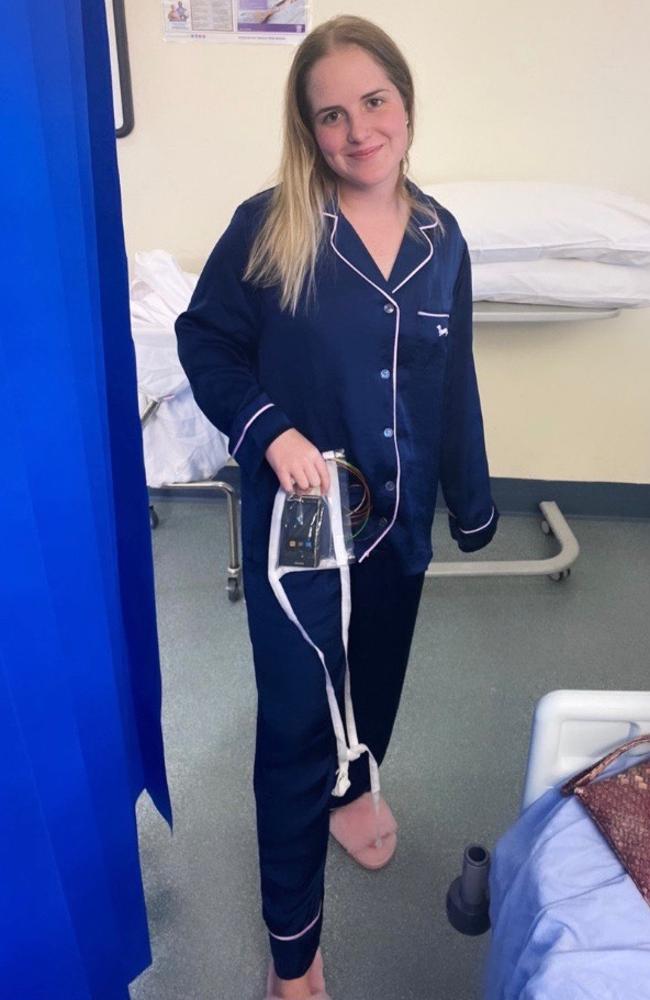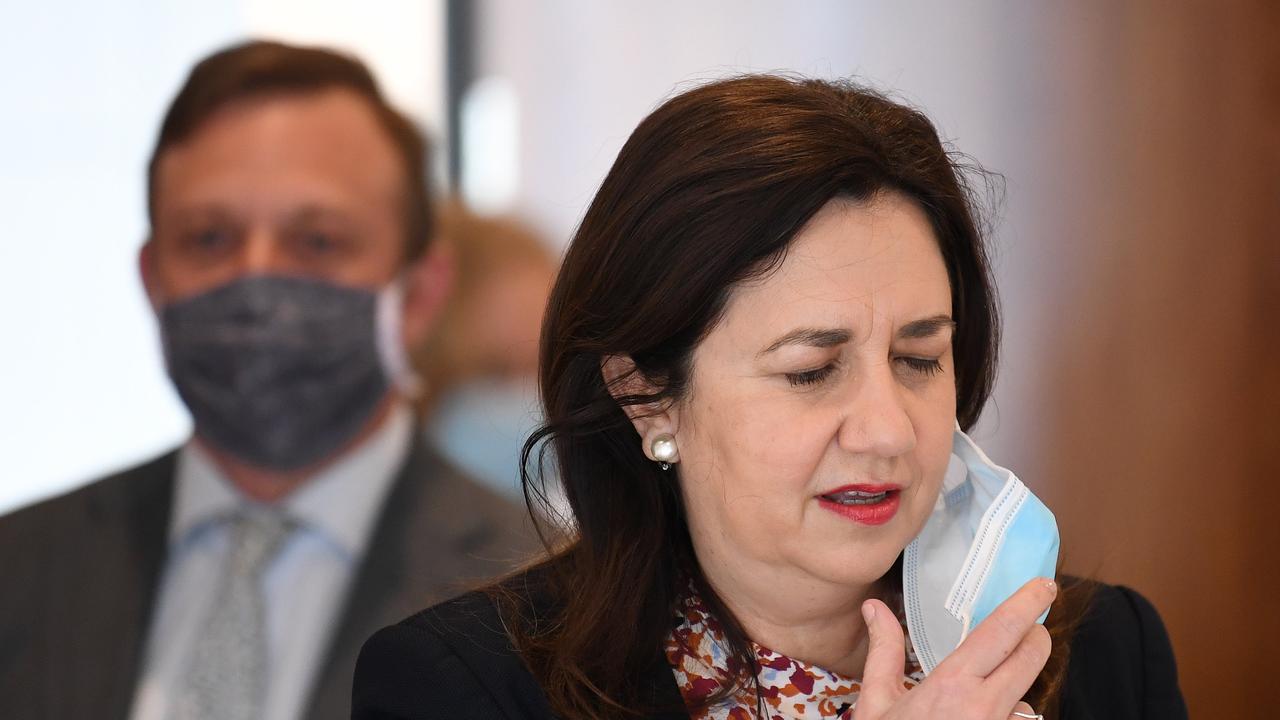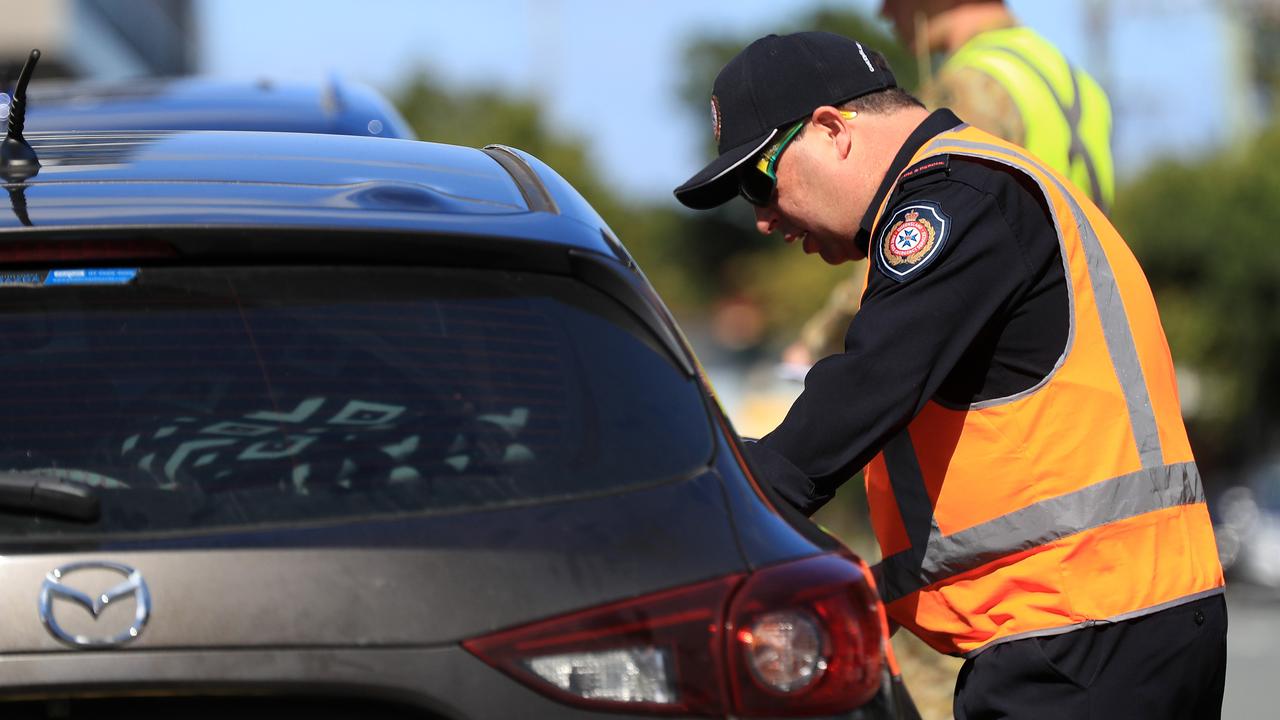Trainee nurse, 18, gets blood clot after AstraZeneca jab
A teenage trainee nurse in Brisbane has been hospitalised with severe blood clots more than three weeks after having the AstraZeneca vaccine.

QLD Coronavirus News
Don't miss out on the headlines from QLD Coronavirus News. Followed categories will be added to My News.
A young trainee nurse has been hospitalised suffering severe blood clots more than three weeks after receiving the AstraZeneca vaccine.
Ellie Peacock, 18, received her first dose of the AstraZeneca vaccine on March 31, one week before authorities recommended people under 50 receive the Pfizer jab.
The nursing student, who works in a casual team exposed to potential COVID-positive patients, returned to the Royal Brisbane and Women’s Hospital on April 18 with severe throbbing and tightness in her calf.
An ultrasound failed to identify any blood clot and Ms Peacock was sent home with the pain later subsiding.
However, the teenager started suffering regular headaches, ignoring them until May 7 when she experienced severe pain near her collar bone when inhaling.

Two days later she went back to hospital complaining of muscle pain in her back and ribs, which a chest x-ray identified as pneumonia.
At 2am on May 11 Ms Peacock again rushed to the emergency department with severe breathing difficulties.
“I was sent home within six hours without further testing done and was told that it’s normal pain with pneumonia and that I need to put up with the pain until the medications start working,” she recalled.
Two days later a visit to her GP revealed her oxygen levels had dropped to 90 per cent, prompting her to again be sent to hospital when a low platelet count and three blood clots on her right lung was discovered.

Speaking from Redcliffe Hospital, Ms Peacock said she believed she was suffering an adverse reaction to the vaccine.
However, the TGA is yet to make a determination.
“My body has improved so much,” she said.
The teenager must take blood-thinning medication and antibiotics for at least six months while receiving blood tests every four days and regular CT scans.
She said her adverse vaccine response did not fit the usual timeline, forcing her to convince doctors of a link.
“I just want people to listen to their bodies because no one knows it as well as yourself,” she said.
According to the Therapeutic Goods Administration adverse events occurs at a rate of 6.5 in every 1000 doses.
Out of the 2.66m doses administered, 17,238 reports of adverse reactions were received.
The most common adverse reaction is headache, followed by muscle pain and fever.
As of Thursday, the number of cases of severe blood clots following the Astra Zeneca vaccine was 18.



